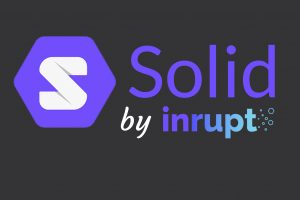From a distributed network to a decentralized web
Interoperability for inter-cooperation #2 : The cooperative movement is a distributed network, comprising autonomous entities guided by common values and a sense of cooperation rather than competition. Uniformization would be irrelevant: autonomy and diversity enable cooperative organizations to meet the specificities of their own territories, thus ensuring efficiency and relevance of the cooperative movement. Cooperative associations thus needed a technology which would preserve their autonomy while enabling them to act as a flexible and powerful network.
Coopedia has been conceived as an overarching solution able to break data silos and help knowledge to flow among different organizations. It includes two key functions: indexing an organization’s resources (documents, videos, books…); facilitating the pooling of resources among organizations.
From a cooperative organization’s point of view, Coopedia is primarily a knowledge management web app. It offers to index resources of any format (text, video, audio…), support (virtual or physical), location (intranet, cloud, shelf) and language. The resource is identified with its URL (or physical location if relevant), and briefly described by the contributor. A classification system and a search engine allow the user to retrieve the resource through different search logics (start-up development stage, author, description…).
Coopedia is integrated to the website of a given organization. This website thus becomes an extranet for cooperative development resources: in addition to managing internal resources, it supports their dissemination. When indexing a resource, users may decide to keep it internal or available to a wider audience. In the latter case, the resource becomes visible on the organization’s website, and searchable by an anonymous visitor.
Last but not least, Coopedia is interoperable: an organization may pool its resources with another organization using Coopedia. In practice, when several Coopedia instances are interconnected, a user can search from a single interface resources hosted by partner servers. Filters help the user to navigate among such resources, while preventing overflow issues. Importantly, each Coopedia instance keeps full control over its own data: it enables to share some or all resources, with chosen partners — and all decisions may be reversed.
In a nutshell, Coopedia sets a cornerstone for building a cooperative web. With Coopedia, cooperatives become interoperable: their systems are able to communicate horizontally, without the need of human intervention or third-party inference. In other words, Coopedia’s interoperability increases cooperatives’ technological capability to cooperate with their peers.



